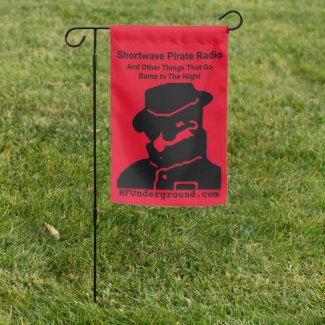« on: May 13, 2017, 2041 UTC »
I've been listening to November Whiskey Victor Charlie calling CQ here for the last half hour or so. I suggest that pirate ops steer clear of this frequency! Also noted that NEPM will be using 6903.5. Info below....
http://www.usarmymars.org/home/announcementsArmed Forces Day Crossband Military/Amateur Radio Communications Test is May 13
04/26/2017
The US Army, Air Force, Navy, and Coast Guard will sponsor the traditional military/amateur radio communication tests on Saturday, May 13 to mark the 66th annual Armed Forces Day (AFD). Armed Forces Day is May 20, but the AFD Crossband Military-Amateur Radio event will take place a week earlier in order to avoid schedule conflicts with those attending Hamvention.
Complete information, including military stations, modes, and frequencies, is available on the US Army MARS website.
The annual celebration is a unique opportunity to test two-way communication between radio amateurs and military stations (authorized under §97.111 of the Amateur Service rules). It features traditional military-to-amateur crossband SSB voice, CW, practice using legacy interoperability waveforms, and the opportunity for participating hams to utilize more modern military modes, such as MIL-STD Serial PSK and Automatic Link Establishment (ALE). Military stations and Amateur Radio stations are authorized to communicate directly on certain 60-meter interoperability channels — 5,330.5, 5346.5, and 5,371.5 kHz.
These tests give Amateur Radio operators and shortwave listeners (SWLs) a chance and a challenge to demonstrate individual technical skills and to receive recognition from the appropriate military radio station. QSL cards will be available for stations successfully contacting participating military stations.
AFD Message
The Armed Forces Day message will be transmitted via Military Standard radioteletype modes (MIL-STD 188-110A/B). Software is available to demodulate the military serial PSK waveform, and detailed instructions can be downloaded. Utilizing this mode with soundcard equipment can be challenging; review the instructions carefully.
A short practice transmission will be sent at 1930 and 2330 on May 6, 7, 10, and 12 on 13.506.5 MHz USB and 17.443.0 MHz USB.
Military FSK is Baudot at 850 Hz, 75 baud, low mark, and 2000 Hz center. Most RTTY programs can be set to decode this mode. To achieve low mark while receiving in USB, select reverse shift.
QSL cards are available for individuals that receive the Armed Forces Day test message. To receive a card, copy the printed text of the test message as received from the military station, and include it in your report. No attempt should be made to correct possible errors.
Stations copying Armed Forces Day messages transmitted from US Army and US Navy stations and requesting a QSL card, can complete the QSL report form online. Stations copying the Armed Forces Day message transmitted from US Air Force stations and seeking a QSL card should send a request to Armed Forces Day Celebration, Chief, Air Force MARS, 203 W. Losey St, Scott AFB, IL 62225.
Include a transcript of the received text, time observed, frequency observed, military station call sign, your full name and Amateur Radio call sign (if applicable), full mailing address (including ZIP code).
Automatic Link Establishment
Stations with Automatic Link Establishment (ALE) capability can contact a military station on specific half duplex crossband channels established for this purpose. ALE is a selective calling and linking method utilized by government, military, and amateur radio communications. Military stations will scan and receive certain amateur HFLINK ALE frequencies and transmit on the corresponding military ALE frequency. Military stations will also transmit ALE station identification (soundings) on each military frequency at 30- to 90-minute intervals. Amateur stations may scan military frequencies and monitor the soundings to build the LQA database or select the channel manually. Amateur stations will call military stations using ALE selective calling on one of the paired cross band channels.
Announced AFD Special Operations
NEPM on board the USS Iowa (BB61) will be on the air for its first annual Armed Forces Day Crossband Military/Amateur Radio Communications Test. The Battleship Iowa Amateur Radio Association (BIARA) and qualified Pacific Battleship Center crew members will activate NEPM.
The Potomac Valley Radio Club (PVRC) and the US Naval Academy Radio Club will operate NSS on the site of the 1918 Naval Radio Transmitting Station on Greenbury Point in Annapolis, Maryland, across the Severn River from the US Naval Academy.
Other Navy Stations scheduled to be on the air include NIIW, USS Midway, San Diego; NWKJ; NWKJ, USS Yorktown, Charleston, South Carolina, and NWVC, LST-325, Evansville, Indiana.
« Last Edit: December 28, 2017, 2052 UTC by Skipmuck »

Logged
QSL's to poorbrookking >at< aol.com are greatly appreciated! All reception and postings using My radio, My antenna, and generally in real time(excluding posting of SSTV images!).
QTH:Springfield, MA
JRC NRD-515 with 43 meter half wave dipole into MFJ 949E Versa Tuner: also Grove SP-200 & SONY 2010's



